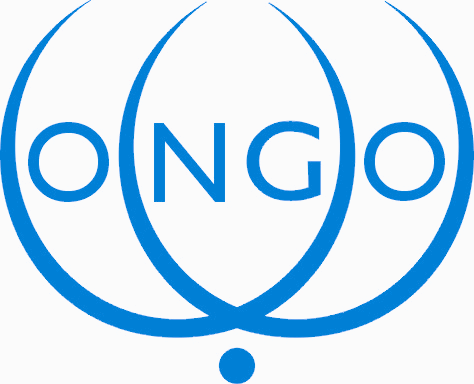

Speaking Notes for input into the Fourth Meeting (Special Session) of the Group of the Friends of the Chair (GFC)
10 January 2005
Mr. Chair,
I speak as CONGO and once more in personal capacity and thank you for giving me the floor. As said before, Civil Society in the larger sense is still in need to finding its voice for input into these discussions. I reiterate: Since we are not officially belonging to the GFC, yet present in the WGIG and to a very small extend in the Task Force on Finance, efforts and mobilization go for the moment into those directions. In addition, resources are still lacking for greater civil society participation. However, a few contributions have been made, in particular by the Youth Caucus and Finance Group and I hope that at PrepCom2 the fuller voice of CS will be back on track.
Political Chapeau
Having said this, as CONGO I would like to commend you and the GFC for the improved new text of the Political Chapeau. It is more dynamic and comprehensive, and we particular welcome the head on linkages to the Millennium Summit, its Declaration and Millennium Development Goals (MDGs)
A few additional comments:
The CS WG on health would like to insert in the last sentence of the first paragraph after to improve quality of life, "to promote physical and mental health"..to make the linkage to health somewhere visible, particularly as you mention in your Annexe under ICT applications: E-health.
We would like to add under Key principles in paragraph 4 before it says :We confirm "The principles of non-discrimination must be mainstreamed in all ICT regulations, policies and programmes". If we want to see WSIS in a human rights framework we have to mention non-discrimination as one of the key principles.
We prefer paragraph 8, rather than its alternate and would add at the end of the para by promoting open access to science and education. We also prefer paragraph 10 and 10B, not 10A. The Youth Caucus would like to add after 10B a 10C with following: "We also recognize that young people are the future workforce and leading creators and earliest adopters of ICTs. They must therefore be empowered as learners, developers, contributors, entrepreneurs and decision makers".
Operational part
Members of CS think that the operational part is still very general and vague and we would like to see more concrete targets, goals and indicators. For example in WSIS targets, chapter one, paragraph 6 we could add in the first bullet: with in-build time-bound measures (of e.g. yearly progress reports), so the bullet would read:
Mainstreaming and aligning national implementation strategies with in-build time-bound measures across national action plans aimed at achieving the development goals of the Millennium Declaration.
Another bullet could be:
Enforcing (or at least improving) implementation of international treaties to measure progress at the level of development, freedoms and democracy
.
Mr. Chair,
Human Rights are good standards for measuring progress and for holding governments accountable to the commitments they have made. In other words, HR should be used as benchmarks or indicators in relation to national implementation of the political goals. (member from a Human Rights Caucus)
The implementation mechanism as outlined in Paras 10 and 11 are welcomed as innovative and merit further attention by CS.
Mr. Chair,
Chapter two on Finances met with strong reservations from some members of civil society. While a more comprehensive analysis from my colleague Sean O Siochru is currently being discussed in the CSWG on Financing, here are some preliminary comments.
1. The TFFM Report does not fulfil its mandate for two reasons:
a) The Action Plan implied strongly that the Task Force should consider new mechanisms as well as existing ones, and this was the understanding of many participants. The Report has failed to do that.
b) The TFFM report was intended to provide the basis for discussion in WSIS phase 2 regarding the "effectiveness, the feasibility and the creation of a voluntary Digital Solidarity Fund" (D2.f). They made no effort to do so, based on a spurious justification that the Fund was not yet operational - a fact that was known when the Action Plan was produced.
2. In terms of its analysis, the Report fails completely fails to consider new paradigms for addressing the pressing needs of the Digital Solidarity Agenda, falling back on inadequate and largely unoriginal calls for purely market-driven and overwhelmingly private-sector investment, and as always demanding greater facilitation from government.
In terms of the analysis, an opportunity has been missed to take a broad view of the issue: This is an overly "finance-centric" paper with no innovations especially in methodologies and approaches for bridging the digital divide.
3. The Operational Draft: Although the Report mentions (if only briefly) such issues as "Public Goods", an "Open Access" approach, and community-owned and cooperative networks - all pointing to new paradigms beyond a narrow market driven concept - these are not mentioned in the "Operational Draft" before the Friends of the President. Its claim that there is "no apparent shortage of finance" is inaccurate and demonstrates a simplistic understanding of requirements. Overall, the Operational Draft in relation to financing mechanisms has taken an extremely narrow interpretation of what is in the first place a very conservative report. As it stands it is not likely to move the debate, or the necessary action, forward in any significant manner.
10/01/2005 Renate Bloem, President